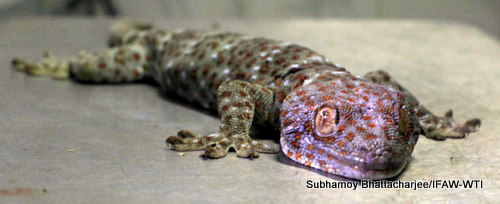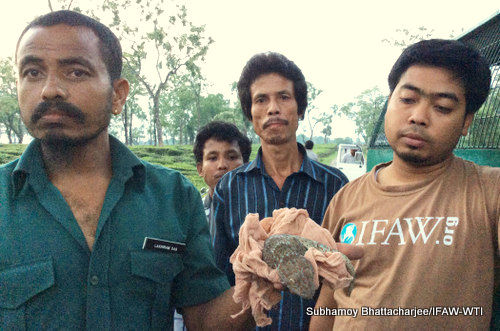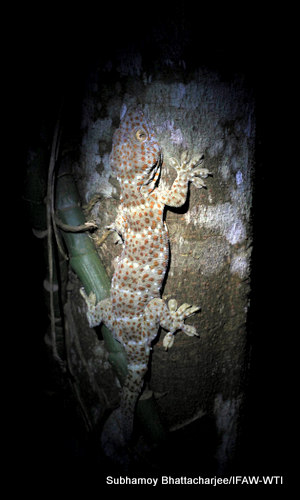Tokay Gecko Released Back to the Wild
CWRC, Kaziranga, May 1, 2015: In a swift operation that lasted all of an hour, the IFAW-WTI team from the Centre for Wildlife Rehabilitation and Conservation (CWRC) rescued and released a Tokay gecko (Gekko gecko) back to the wild.
The CWRC MVS team was heading back from Agoratoli, the eastern range of Kaziranga, when our MVS vehicle was stopped by a group of youth on National Highway 37. Naren Gogoi, a local youth of Ahom Gaon, a fringe village of Kaziranga, showed us a small reptile on the ground. It was a Tokay Gecko, a lizard that is traded for unscientific claims to its medicinal properties.
The gecko is commonly seen across Assam and locally known as Keko Saap. Sadly, it is not listed under CITES. The boys of Ahom Gaon were aware of conserving wildlife and knew that it is a reptile that needed protection. They guarded the gecko for some time and informed our MVS team which was returning from the national park.
By the time Lakhiram Das, the animal keeper picked up the reptile, the police also reached at the site. The Tokay gecko was taken to CWRC for observation. As it was weighed, the sun set and it was growing dark. Since no external injury was found on the gecko, it was immediately released in Panbari Reserve Forest. The entire rescue and release operation ended within an hour.
We saw it go up a tree, until it disappeared from our eyes, letting off its typical call, making all of us smile at this opportunity that let us be the saviour of small things.
The second largest of the Gecko species, the Tokay gecko can attain lengths of about 11–20 inches (28–51 cm) for males, and 7–19 inches (18–48 cm) for females. Distinctive in appearance, they have a bluish or grayish body and has brightly coloured spots ranging from light yellow to bright red. Males are more colourful than the females.












